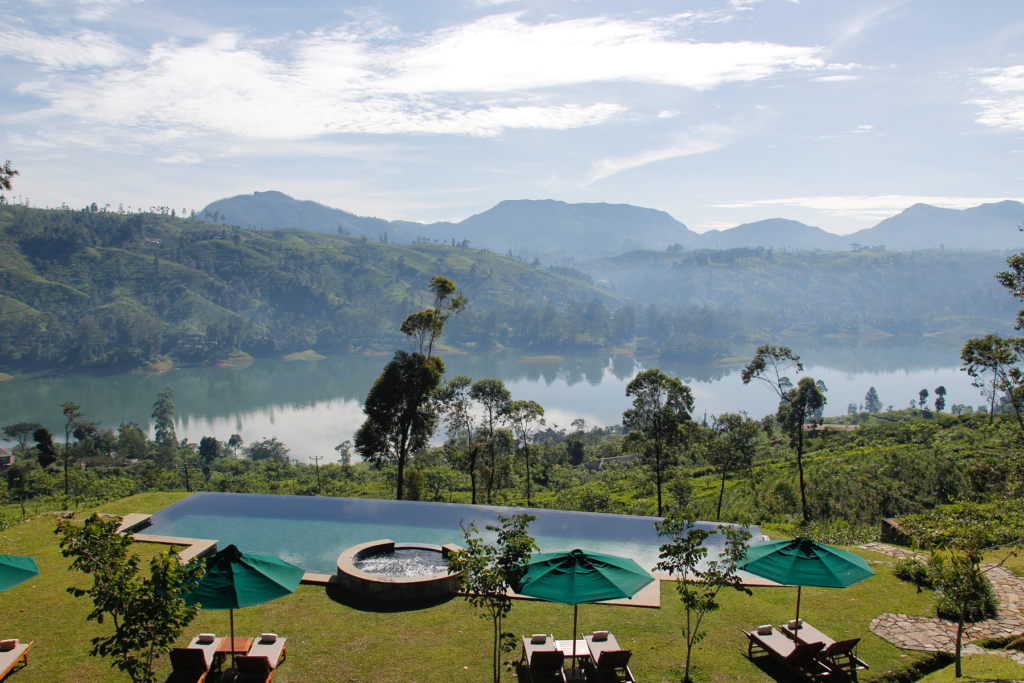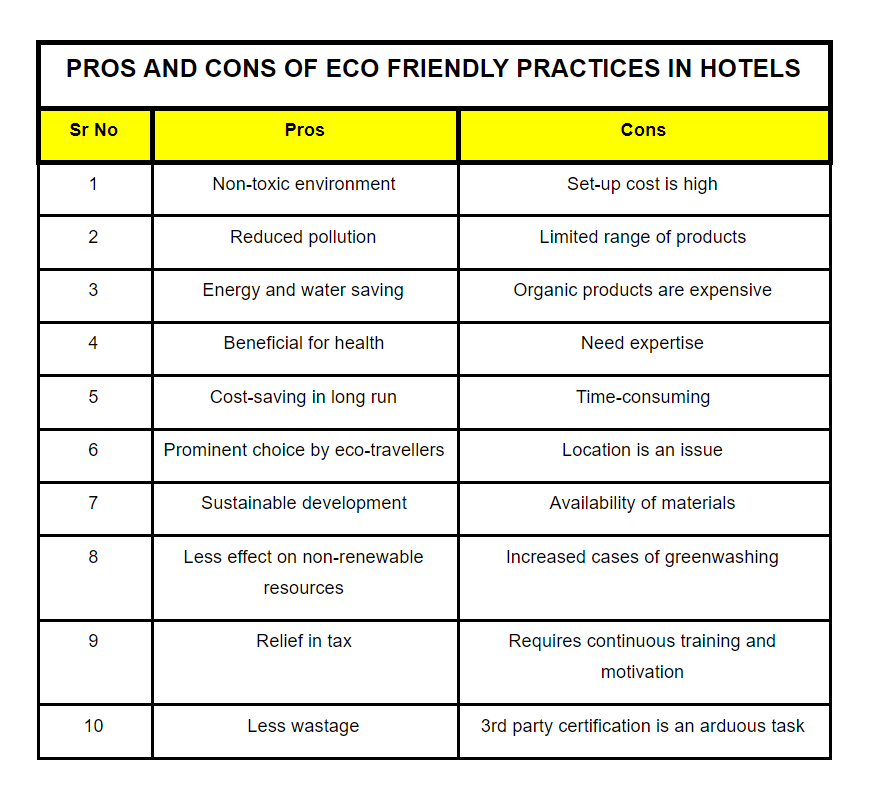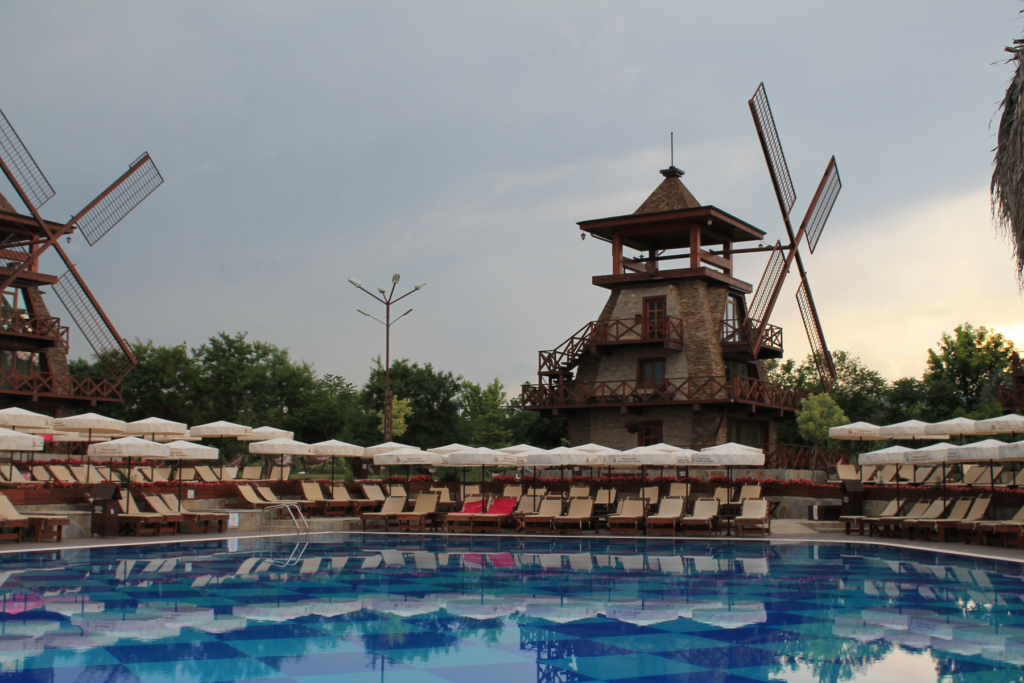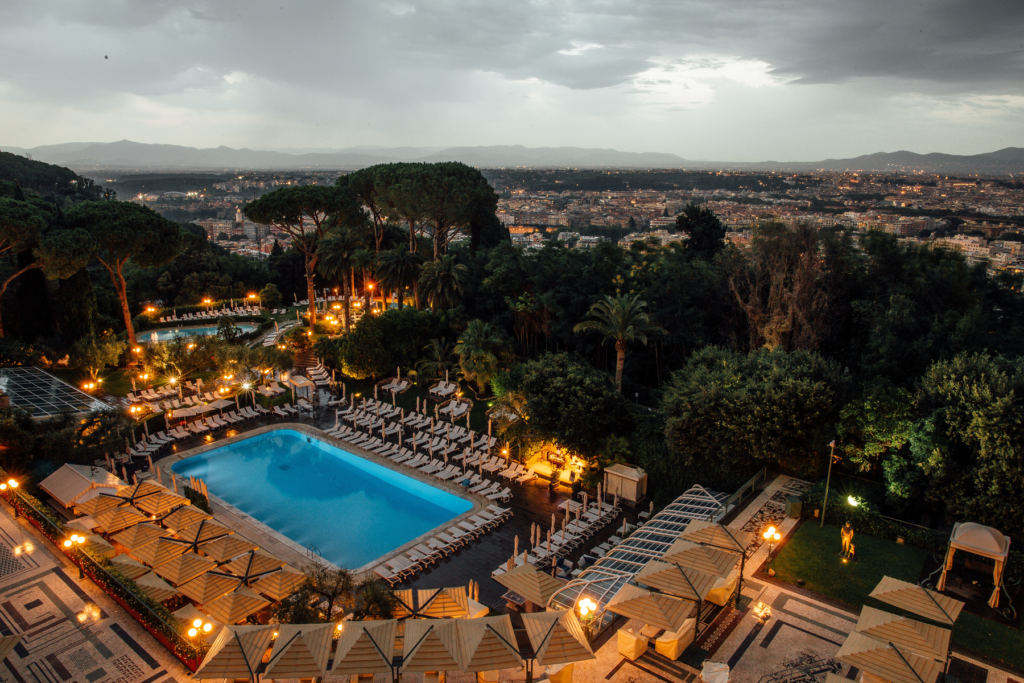The Earth is dying! Yes, that’s true. We all are aware of the considerable environmental damage that has happened in the last few decades. And everybody can feel its repercussions.
Soaring temperatures in summer, irregular rainfalls, melting glaciers, dried water bodies, depleting ozone layer, and this list is never-ending. I am not scaring you, but if this continues, we may soon face a catastrophic situation.
Many industries have adopted sustainable practices to save the environment, and the hospitality industry is not behind in this eco-friendly drive.
Today in this blog I’ll discuss sustainable hotel practices to make your property eco-friendly.
Table of Content
- What are eco-friendly hotels?
- What are pros and cons of sustainable hotel practices?
- How to have an eco-friendly hotel?
- List out suitable ways and products
- Form a green team
- Avoid plastic
- Go paperless
- Automation for conservation of water and energy
- Opt for eco-friendly options
- Invest in green energy
- Rain-water harvesting
- Implement 3 R’s (Reduce, reuse, recycle)
- Environmental audit is necessary
- What are some of the famous eco-friendly hotels?
What are eco-friendly hotels?
Eco-friendly hotels are properties that have adapted sustainable ways and products to protect the environment. In simple terms, eco-hotels practice green living by using organic products and clean energy.
Eco-hotels form an important part of eco-tours. In fact, many of them are located in natural places such as forests, near waterfalls, or amidst the mountains.
Going by various names like eco-lodge, environmental-friendly hotels, and green hotels, they have carved a niche among travellers these days because of the non-toxic environment they offer.

What are the pros and cons of sustainable hotel practices?
Although sustainable hotel practices are environment friendly, they come with their own set of problems. Let’s take a look at the pros and cons of eco-friendly practices in the hotel industry.

As they say – every coin has two sides, and this dictum applies to greenways also. Before you make any decision, keep in mind these pros and cons.
How to have an eco-friendly hotel?
Now that we are well-versed with the concept of green hotels, let’s look at some eco-friendly practices in the hotel industry.
1. List out the suitable ways and products
The first step is deciding on the products and ways you need to use them at your property. This depends on multiple factors, such as location, budget, availability of materials, and ease of use.
For instance, to use wind energy as an alternative source of electricity, hotels need to have open space, access to farmlands, and a definite height. Without any of these factors, using this step is a sheer waste of time and money.
Let me give you another example. Organic products such as bamboo fabric bed sheets, natural room cleaners, infrared saunas are costly and have availability issues.
This makes it difficult for every hotel to opt for these organic products. Hence, consider the mentioned factors before making a list of sustainable hotel practices.

2. Form a green team
Implementing sustainable hotel practices definitely requires expertise. You need to create a team with an expert and some interested employees from each department.
Once they receive training, you can deploy them to guide others and keep a track if the practices are followed in a proper manner.
But, it’s important that the team members are highly motivated. The reason I bring this up is, initially everyone is excited with the idea of going green. However, after some time, the motivation to follow these practices goes cold.
3. Avoid Plastic
Ban plastic – This campaign has been among us for the last few years. However, there are only a handful of cities that could achieve a 100% plastic-free environment.
As you know, plastic is a non-degradable material, which makes it difficult to decompose. You can either recycle, reuse, or avoid using it completely.
You can opt for alternatives to plastic. For instance, you can use cotton or jute bags instead of polythene, or terracotta containers instead of plastic boxes.
Plastic is indeed a bane to the environment and to all the living creatures on earth. It’s better if we could get rid of it as soon as possible.

4. Go Paperless
Did you know that every day, there are thousands of trees being axed down for making paper?
Yes. As per the statistics shared by GFRA (Global Forest Resource Association),
Every day, roughly 80,000 to 1,00,000 trees are cut down to make paper.
Imagine the amount of deforestation that takes place every year. And, it’s obvious that it would have a drastic impact on our environment.
We live in a digital era, where every kind of data can be stored on cloud servers. Moreover, it’s convenient, as you don’t need to maintain a pile of papers and can find any information with just a click of a button.
Similarly, you can invest in a good PMS in your hotel that can help you with easy check-ins, guest profiling, tracking requisitions, and maintaining guests’ data.
‘Go Digital’, is the motto that the hospitality industry should work on.

5. Automation for conservation of water and energy
These days many malls, airports, and theatres have automatic faucets installed in the public restrooms. These faucets are equipped with sensors that dispense water only in the presence of a user’s hands.
That’s one of the convenient methods to save water, especially if you have a regular inflow of guests. In fact, using these motion-sensing faucets at your hotel can save you ample water.
A research conducted by California State University, Sacramento proved that,
Automated faucets can save 50-60% of water, as compared to a regular tap.
It’s a little expensive option, but it is beneficial in the long run. You can start by installing these motion-sensor faucets in your hotel lobby’s washroom.
Many hotels have magnetic keycard facilities. These keycards act as a connector to complete the circuit, and allow the flow of electricity.
The moment these cards are taken off from the slot, the circuit is broken resulting in power cut-off. It is one of the popular eco-friendly amenities used in hotels to save electricity.
6. Opt for eco-friendly options
Organic products are in trend these days. You must have come across many products stating – made from 100% natural or organic ingredients.
So, what are these organic products?
To grow any plant or crop, you need to use fertilizers and pesticides for getting a quality output. But, many of these are grown using harmful chemicals.
Once these crops are harvested and developed into final products, they are mixed with preservatives or other chemicals to extend their shelf life.
In contrast to these, organic products are grown using natural fertilizers and pesticides. Moreover, they are preserved using antioxidants or natural methods like vitamin e oil, germaben, rosemary oil, salt, and sun drying.
Using these organic products is definitely a great sustainable idea for hotels to keep the environment free of harmful chemicals. However, beware of greenwashing.
Greenwashing is a term coined for products or organisations that promise of being eco-friendly, but don’t practice sustainable ways to achieve it.
Before investing in natural alternatives, check if the manufacturer has ever been involved in any case of greenwashing.
7. Invest in green energy
Have you come across this saying, ‘Green energy, clean energy’?
Nowadays, industries are adopting renewable sources of energy as an alternative to fossil fuels.
Solar, wind, hydro, and nuclear power have already made their way into major industries. As a matter of fact, the governments of many countries support the organisation who pitch in for adopting clean energy.
Even the hospitality industry made their way into using clean energy. Many hotels have invested into solar heaters, bio fuels, CHP (Combined Heating and Power), wind farms, and geothermal energy.
Wind and geothermal are uncommon due to their location restriction. Solar power is one of the best ways to harness and store energy for use as an alternative source of electricity.

8. Rain-water harvesting works
Nature has given humans everything for survival. It’s upon us how we utilise these resources in a sustainable way.
Every year, many countries face drought and famines during summer due to scarcity of rainfall. Additionally, because of deforestation, the situation has worsened.
To combat this situation, rainwater harvesting is an excellent method to save and store water for future usage. The method is simple and effective.
All you have to do is build an underground chamber, to collect the rainwater directly during monsoons and channelise the water collected on your hotel’s terrace into the tank.
The water can be filtered and used for non-drinking purposes like laundry, cleaning vegetables, equipment, washrooms, and other such activities.
9. Implement 3 R’s (Reduce, reuse, recycle)
One of the important ways to create an eco-friendly environment is using 3 R’s – Reduce, reuse and recycle. Let’s take a brief look at them.
Reduce – As the name suggests, you need to reduce the amount of waste generated in your hotel. It’s better to avoid using materials that are unfriendly to the environment. Moreover, you can make an appropriate quantity of food, so that the amount of wastage is minimum.
Recycle – When I say recycle, it’s not only limited to plastic or glass. You can recycle various things such as fused bulbs, cans, cartons, and cartridges. Waste treatment is another alternative for materials that cannot be recycled.
Reuse – The simplest of all the 3 R’s, reuse is a common practice among every person. For instance, every home has polythenes stocked for throwing garbage, storing products or any other purpose. Similarly, you can reuse paper, toner cartridges, or linen (if the room has the same guests staying for a couple of days).
10. Environmental audit is necessary
Once you start using sustainable hotel practices for being eco-friendly, you need to invest in environmental audits. It’s a necessary step for every hotel.
If the hotel passes every point in the audit, they are given LEED (Leadership in Energy and Environmental Design) certification. It is a proof that the particular hotel practices methods which are beneficial to the environment at certain levels.
However, this audit is carried out by third parties, and you need to be careful while choosing them as you may come across fraudulent ones also. Some of the other eco-friendly certifications are:
- TripAdvisor Green Leaders
- Greenkey
- Energy Star
- Green Tourism
What are some of the famous eco-friendly hotels?
Let’s take a look at some of the famous hotels practising sustainable ways.
- Svart, Norway: The property uses solar energy as the main source for electricity and is the world’s first energy-positive hotel.
- The Machan, India: Located in India, The Machan is a tree-house based hotel. The rooms are made using wood from dead trees without disturbing the environment, thereby making it eco-friendly.
- Bambu Indah, Bali: This property has various tents made from bamboo, and is situated on treetops. The restaurant here serves food made from organic ingredients on plates made of leaves. Surely, it is a catchy and sustainable property.
It’s time to act
Earth needs saving. For the last decade, global warming and climatic changes have become a matter of concern.
To make our earth cleaner, greener, and free from toxic elements, we need to adopt sustainable hotel practices.
Because, if we don’t act now, the doomsday is not far away. I’ve listed various ways to make your hotel eco-friendly, it’s time for you to start implementing them on your property TODAY.



